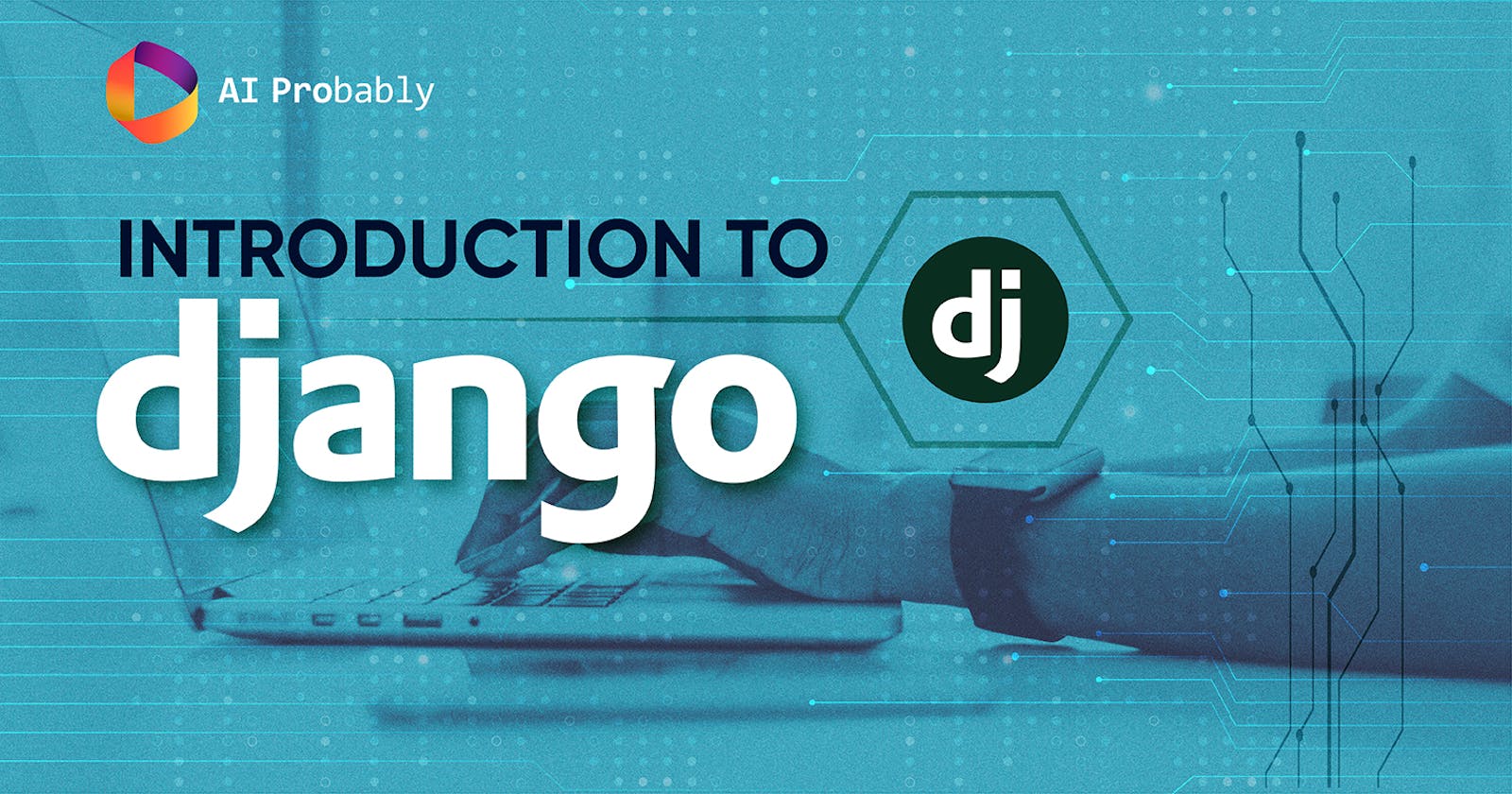Introduction to Django
To help you understand the fundamentals of Django and build a strong foundation in Django.
Knowing a programming language will only get you so far 👀 . You'll never get things done before the deadline ❌ if you have to build everything yourself. It's a great idea to pick up a framework ✔️ once you've mastered a programming language 🔰 . Django is the most popular Python full-stack framework. Once you've mastered it, creating web applications will be quick and extremely easy! ✨
In this blog, we will look at some features of Django and demonstrate its ease of use 👑 . If you are excited as I am, let's dive in 🤗 .
Assumptions for the reader:
- You have a basic knowledge of Python 👍🏻
- You are excited!🙌🏻
Before we get there, let’s understand a web framework and why we need it. 🤔
A web framework is a server-side application framework designed to support the development of dynamic websites 💻 . Django is one such framework available for Python 🔰 . Basically, Django is a code library that makes the life of a web developer much easier 👩💻 .
But how? How exactly does a web framework help❓
A web framework is a collection of class/APIs with predefined codes that you can use in your program to add a feature to your web application 🌐 .
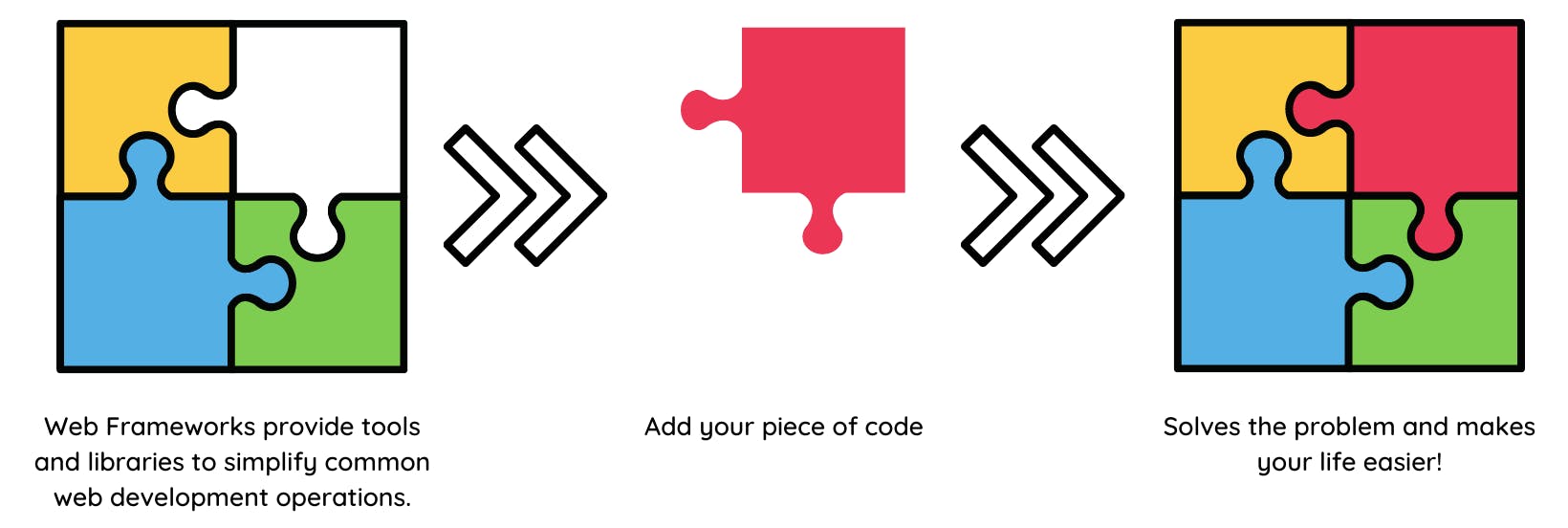
So, we have a web framework with a set of APIs ✅. We just need to add our snippets of code wherever required — and done! 🎉 That solves the problem.
So, what is Django?
The Web framework for Perfectionists with Deadlines.

📌 Simply defined, Django is an open-source Python web framework that allows web and app developers to create and deploy big projects 👨💻 rapidly, safely, and in a consistent, "clean" style. 🔗 It comes with a set of out-of-the-box tools that support, enrich, and accelerate 💨 the traditional web development process, allowing you to complete otherwise difficult tasks quickly and to a high standard. ↗️
It also makes working with databases a lot easier 🔰. You don't need to work directly with a database because Django takes care of creating the database on the go 🤝🏻 as the user creates models. You can easily swap from one SQL database to the other at the same time.💯 With Django, you can have a fully functional, secure, and admin-editable website in just a few hours. 🌟
Nevertheless, it's a framework worth having on your portfolio!🤩
Features of Django
💡 Some features Django offers us are:
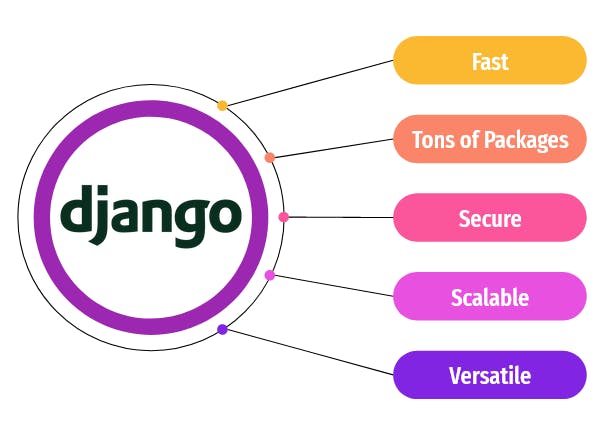
Is there anything built with Django that I'm familiar with?🤔
You have, without a doubt! 🙌🏻 A few of them are listed here:
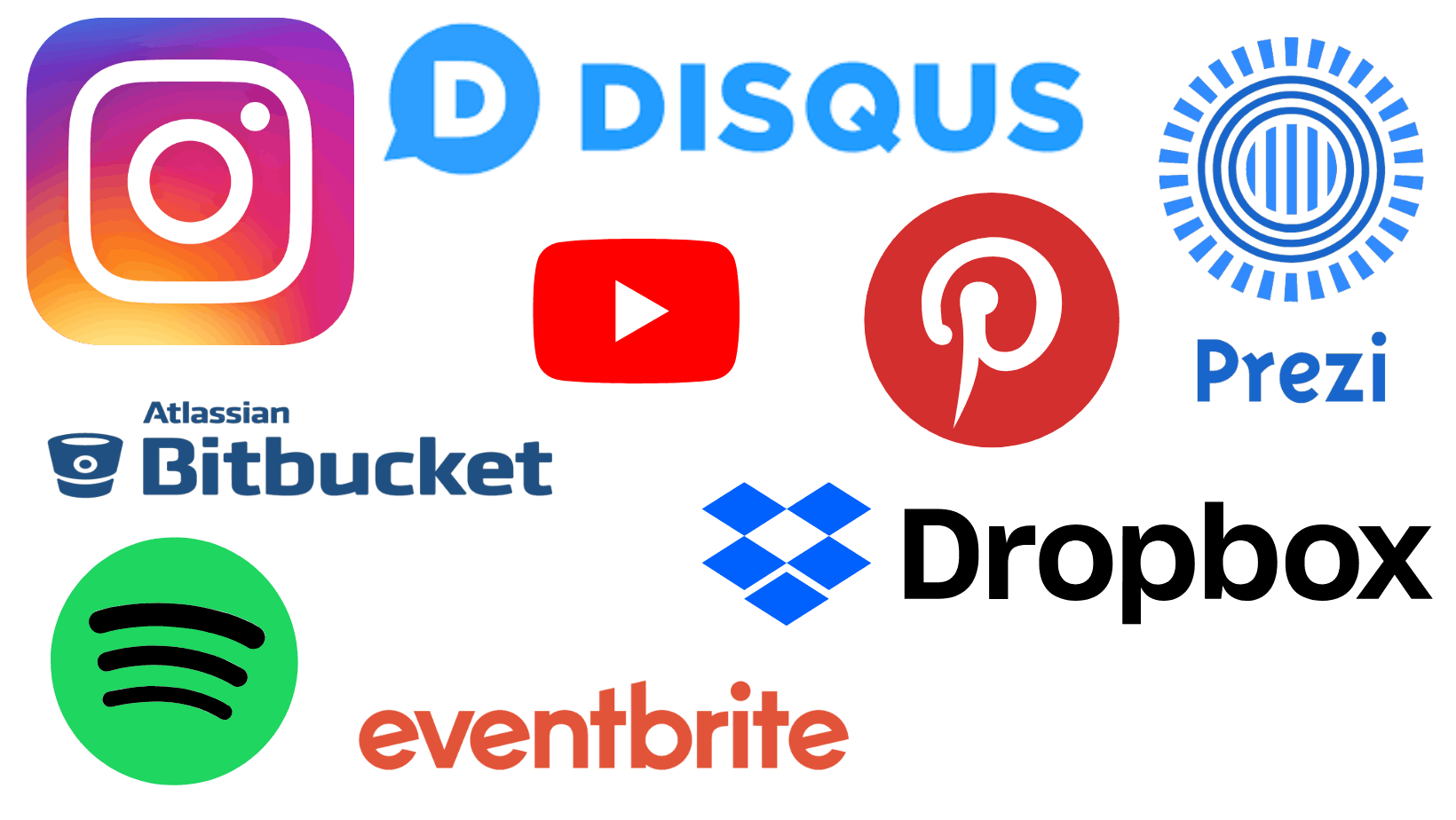
Django MVT Architecture
📌 Django follows the MVT Pattern. What is MVT?
The MVT pattern is a type of software design pattern. 👇🏻 It is made up of three major components:
- 📍 Model - It aids in database management. Your database is defined in the backend ✔.
- 📍 View - This executes the business logic and interacts with the model to carry data and render a template ✔.
- 📍 Template - It handles the User Interface ✔.

💡 So, the process is pretty simple. A user sends the request via the browser ➡🌐. Django acts as a controller ✔, checking the URL for available resources and the associated view is called 👍🏻. The model and template interact with the view 🤝🏻, which retrieves data from the database via the model ↩, formats it, and renders with the help of the template as a response. ✅
Why Django⁉
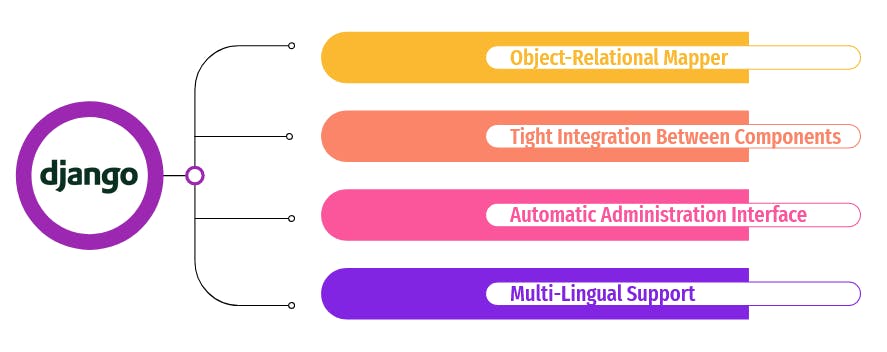
- 📍 ORM - Here, you can define your data models ✔.
- 📍 Django comes with a fully-featured and secured authentication system 👨💻. It handles your user counts, permissions, etc ✔.
- 📍 It provides a powerful and production-ready interface to manage content on your site 📋. If you want to add a user or create a group 📱, Django has an in-built admin interface created automatically ✔.
- 📍 Django offers full support for translating into different languages plus locale scale-specific formatting (e.g., dates, time, time zones) ✔.
So, where do I begin with?😯
No worries at all! 🤗 AI Probably has got you covered.🙌🏻 We are soon launching a FREE 3-hour crash course on “Python with Django”. 💯
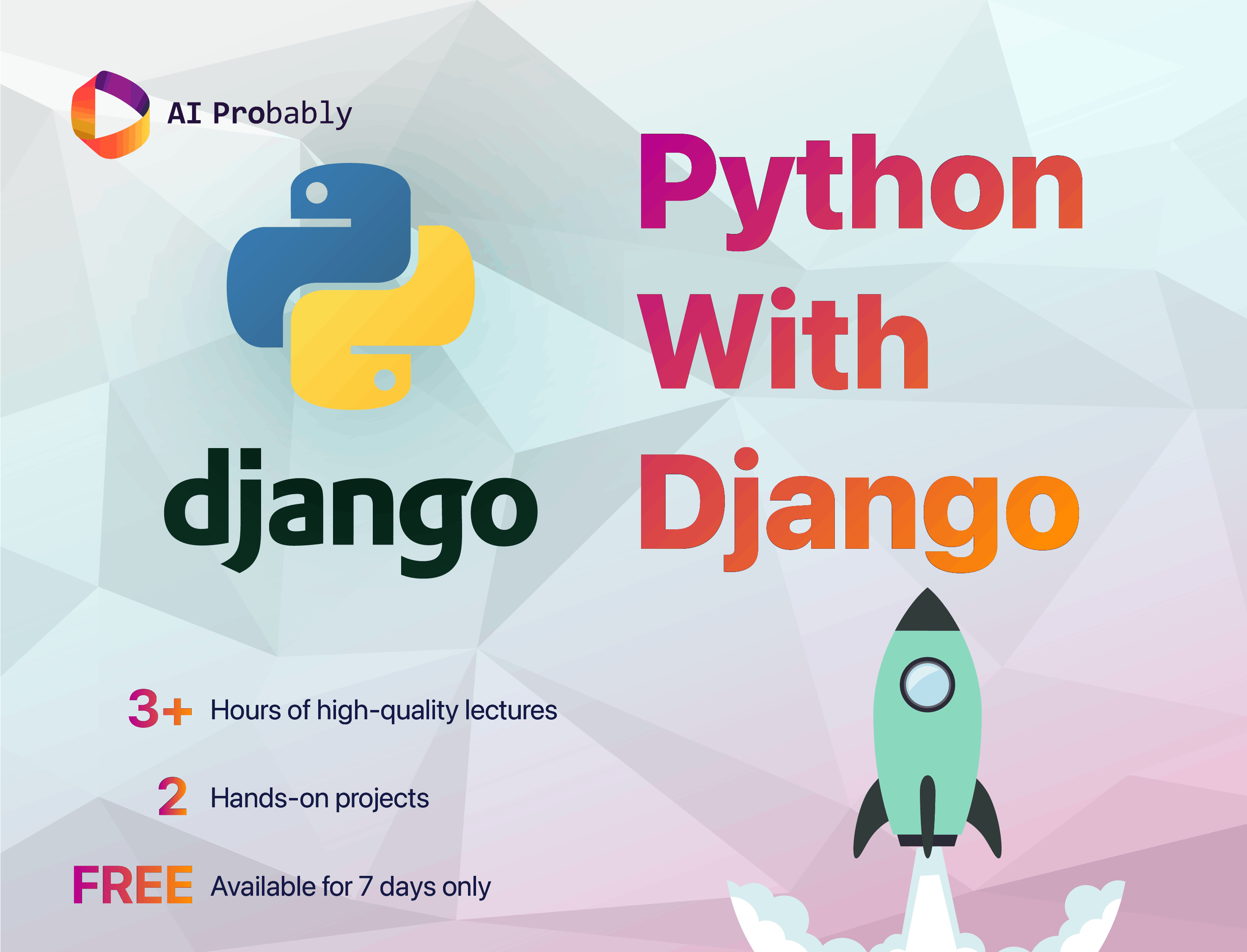
💡 This course will teach you Django from the ground up 📈, so you don't need any prior knowledge to get started, just a basic understanding of Python 🔰. We start from the basics ↗️ and work our way up to understanding the 📍 Django MVT architecture, 📍 setting up SQLite Database , 📍 adding views and templates to our website, 📍 handling requests and responses - step by step 📑. This course has it all covered in great detail 📝 and backed up with a complete example course project 👨💻.
What’s more? We have gamification-based Learning! 🎮 What does that mean?
🔆 That means you learn complex topics through interactive games 🎮 on our website! ✅ With our latest advancement in Gamified Learning methods, you now stand a chance to improve your learning engagement and see your skills grow exponentially! 📈
Let’s build a project now!
The Django community 👨👩👧👦 is a vibrant group of talented programmers 👨💻, and there are numerous tools to help you get started. Also, excellent documentation provided by Django; extremely straightforward and very informative 📌.
💡 Let us create a small project using Django .
Now, to begin, you'll need Python installed 🔰. Python comes pre-loaded on OS X and Linux-based systems, so if you're using one of those, you're good to go ✔. If you're using Windows, 👨💻 you'll need to download and install Python from the Python website .
Now, all we have to do is open up a terminal 💻 and run
pip install django
to install Django without impacting anything else. The most recent version of Django will be downloaded and installed ✔. To get started with Django, we'll need to create a project. Navigate to the folder ↪ (using terminal) where you want to create your project and type
django-admin startproject myproject
📌 If you look inside this directory, you'll notice that it has created a myproject folder with the following structure:
myproject/
manage.py
myproject/
__init__.py
settings.py
urls.py
wsgi.py
☝🏻 This is the default project structure for a Django project. Django comes with a built-in server that you may use to test your app 💻. It makes it very easy to get your projects up and running 🌟. Run the server:
python manage.py runserver
🚀 You’ll see the server startup and direct you towards http://127.0.0.1:8000.
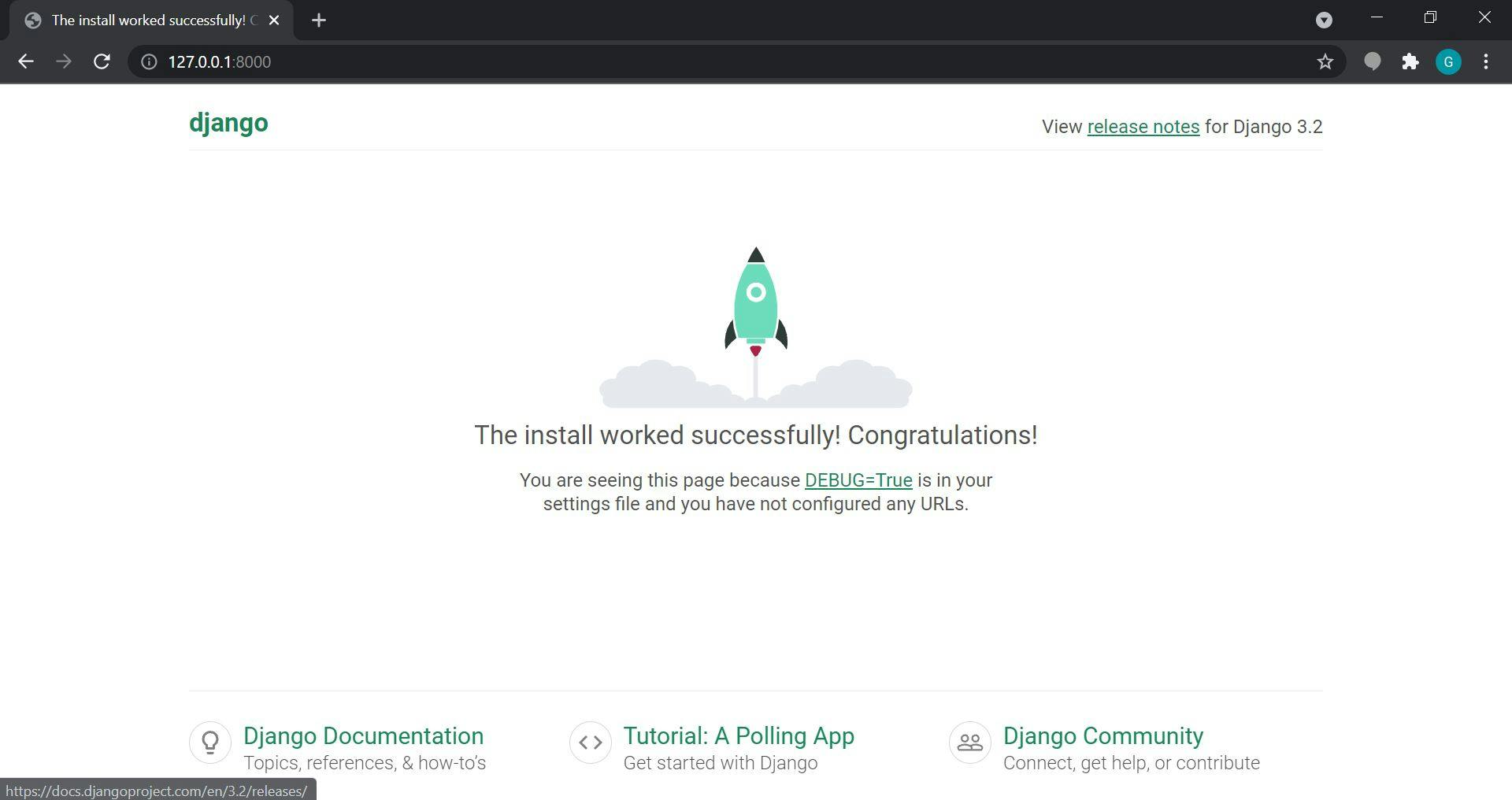
What does each of these files do❔
When you run startproject, four files are generated: manage.py, settings.py, urls.py, and wsgi.py.
- 📍 The
manage.pyfile replaces thedjango-admincommand we used earlier; it is your main entry point ↪ into your application and runs any management commands related to our project, such as creating an admin user. It is extremely unlikely that you will need to modify this file 🚫 . - 📍 The
settings.pyfile contains all of our project's settings 📝, such as the project's name, the URL it will live on, and so on. - 📍 The
urls.pyfile is the one that contains the routing information for all Django requests; it maps various URLs to their corresponding views 🎯 . - 📍 When you deploy your project to a server, the
wsgi.pyfile is used. It enables a WSGI HTTP server, such as Gunicorn, to mount your application and allows HTTP requests 🚀.
I hope you have learned a lot from this article. For learning about a front-end web framework, check out our article on Introduction to React . Watch out for more helpful content and be sure to stay connected on our social media handles!
Happy Learning! 🎉
